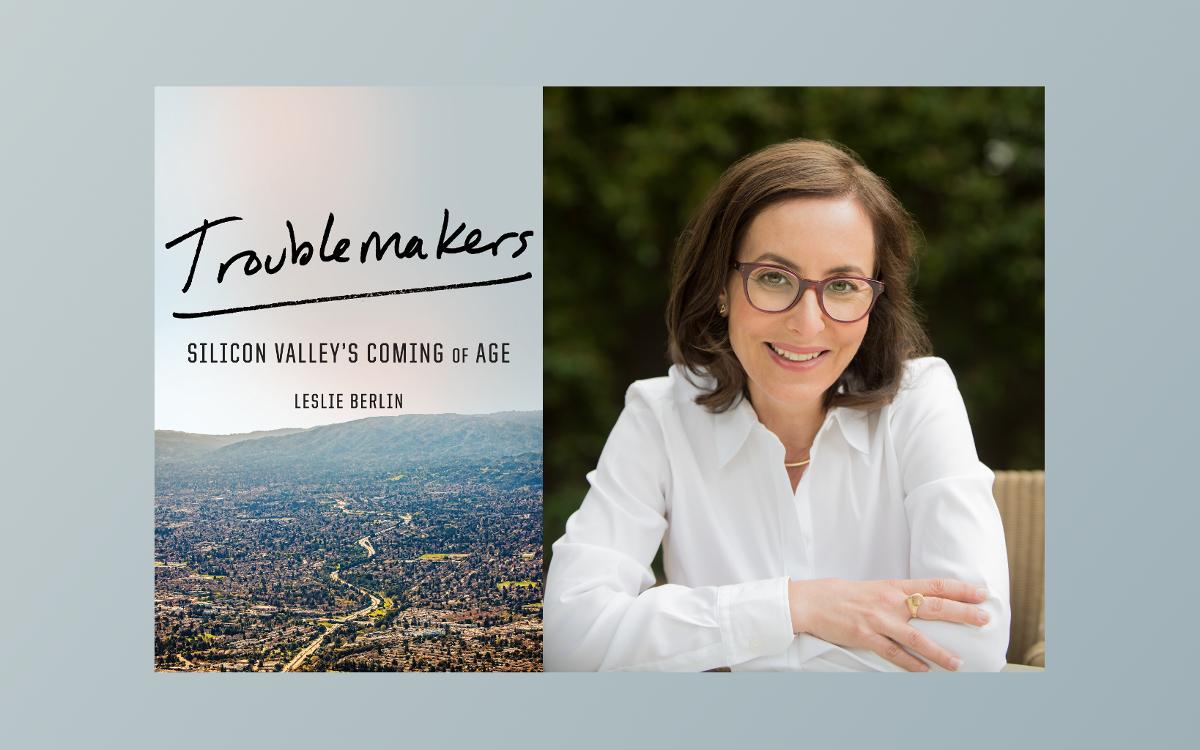By Levi Sumagaysay
Mercury News
WWR Article Summary (tl;dr) Leslie Berlin’s new book, “Troublemakers: Silicon Valley’s Coming of Age” tells the stories of less well-known, but equally important pioneers of Silicon Valley from the 1970s and ’80s.
Mercury News
As Silicon Valley tech companies struggle with important questions about their influence, reach and culture, it might be the perfect time for a history lesson.
Enter Stanford historian Leslie Berlin’s “Troublemakers: Silicon Valley’s Coming of Age.” Berlin acknowledges it’s a “fortuitous time” for her book to come out Nov. 7 after having worked on it for the past six years.
Berlin tells the stories of less well-known, but equally important pioneers of Silicon Valley from the 1970s and ’80s, such as Mike Markkula, who was instrumental in the founding of Apple; programmer Sandra Kurtzig, the first woman to take a tech company public; Al Alcorn, the Atari engineer; Bob Taylor, to whom we owe the personal computer and the internet; Bob Swanson, co-founder of Genentech; Fawn Alvarez, a woman who went from factory floor to executive suite; and Niels Reimers, who helped university innovations reach the public.
“Troublemakers” also contains some “aha!” moments as readers realize the many connections between the old and the new.
We spoke with Berlin about her book and the state of the tech industry on the phone last week. This interview has been edited for length and clarity.
Q: How does one become a project historian for the Silicon Valley Archives at Stanford?
buy professional pack generic buy professional pack online no prescription
A: First and foremost, I consider myself a historian and storyteller. I pursued my Ph.D. in the history of tech. I loved everything about Stanford, which had already been collecting information in this area. I was entrepreneurial and invented a job for myself. It was a need that needed to be filled.
Q: What are the lessons entrepreneurs, tech executives and companies can learn from your book?
A: One, whoever’s on top now is not necessarily going to be on top later, and that’s true for whoever’s bringing up the rear. For example, Atari was so important, and look what happened. And you could say Apple was on the top of the world then, and it still is. But it was within 90 days of bankruptcy at one point.
Two, the importance of teamwork. One of these reasons I wrote the book this way is that very often history in general is written in the style of “the great man biography.” I did that when I wrote a book about Robert Noyce. But in this book, I emphasize that the valley was built by so many people, some of whom were just outside the spotlight.
Three, the importance of passing the baton. Entrepreneurs need to find someone who’s done it before. Steve Jobs learned from Mike Markkula. When you’re looking to hire people, separating impact from flash can be hard. There’s sometimes a correlation between those two and sometimes not.
Q: What do you think of the backlash against tech, especially in the wake of the presidential election and how Facebook, Twitter and Google were used for Russian-backed propaganda?
A: I think it’s crucial that we’re asking the kinds of questions that we’re asking. When these companies were little, they had the luxury of focusing on profit and growth. Now we’re dealing with existential questions.
I do worry about the “baby with the bathwater” phenomenon here. We can’t lose sight of how important these companies have been for pushing the economy forward, and for really enhancing people’s lives.
This is a very provocative thing to say, but: Is the American public angrier at Facebook, or at Russia? I don’t know the answer. The fact that you have to ask is interesting.
And of course these big companies are vital, enormous and powerful, but Silicon Valley and high tech are so much more than just these companies.
Q: What do have to say about the valley’s sometimes sexist, inappropriate culture? It goes way back, as you show when you told Kurtzig’s story — and mentioned Atari founder Nolan Bushnell’s naked hot-tub parties.
A: Well, do I think it’s more likely we end up with a culture like this when there are few women in power?
Q: Who is the most fascinating tech figure you’ve ever interviewed?
A: It’s tough. I’ve talked to Andy Grove, Steve Jobs, Warren Buffett, Gordon Moore, and I’ve talked to all the people in this book. I’m not even sure that “fascinating” is the most important part of that. One of the great things about this line of work is when you get off the phone, or walk away from a lunch, and you say, “Wow.”
Q: What is the greatest threat to Silicon Valley’s tech industry?
A: I think the greatest threat is the proposed shutting down of immigration. There is no American high-tech industry without immigrants. Full stop. Couple that with cuts in public education, and it’s a recipe for disaster.
——
Leslie Berlin
Age: 48
Position: Author and Project Historian for the Silicon Valley Archives at Stanford.
Previous jobs: Speechwriter, also taught at Stanford.
Education: B.A., Yale; M.A./Ph.D., Stanford.
Residence: Silicon Valley.
Family: Husband, two kids.
——
Five facts to know about Leslie Berlin
1. She and her husband met when they were 12 years old.
2. She thinks “Galaxy Quest” is one of the funniest movies ever made, though few people seem to agree with her.
3. The best non-fiction book she has read this year was David France’s “How to Survive a Plague.”
4. Her favorite novel this year was Andrew Sean Greer’s “Less.”
5. She has worked at Stanford’s Silicon Valley Archives for 15 years. The archives are always looking for papers, notebooks, videos, and emails or other electronic files that help reveal the history of this area. SVArchive.Stanford.edu














































































































































































































































































































































































